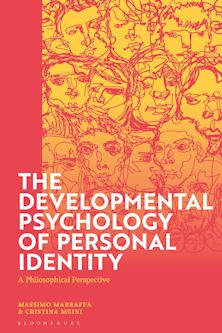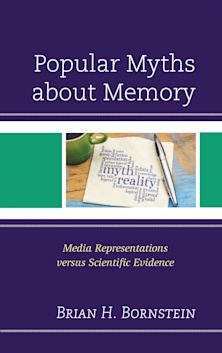- Home
- ACADEMIC
- Psychology
- Cognitive Psychology
- Methodological Problems with the Academic Sources of Popular Psychology
Methodological Problems with the Academic Sources of Popular Psychology
Context, Inference, and Measurement
Methodological Problems with the Academic Sources of Popular Psychology
Context, Inference, and Measurement
You must sign in to add this item to your wishlist. Please sign in or create an account
Description
Methodological Problems with the Academic Sources of Popular Psychology: Context, Inference, and Measurementexamines the relationship between academic and popular psychology from a critical perspective with a focus on issues of methodology. The monograph traces the path from ideas in reputable popular psychology back to the original academic research tradition from which the claims were generated. It also addresses the conceptual and methodological controversies with respect to the original research typically ignored or played down in popular writing. This book covers a range of topics including the question of universal biases in judgment, resurgent notions of “fast” thinking and a cognitive unconscious, the psychology of happiness and other “positive” psychologies, the effects of parenting on child outcomes, and more general issues related to psychological tests and measures. The methodological problems that emerge include problems with generalizing from specific experimental conditions, highly biased sampling, lack of replication of findings, lack of shared referents across subfields, even different authors, as well as confusion around basic statistical and mathematical issues. Methodological Problems with the Academic Sources of Popular Psychology: Context, Inference, and Measurementreviews these issues extensively, offering both a sense of the history and pervasiveness of these issues in the field itself and an opportunity to review and master these difficult ideas.
Table of Contents
Chapter One: The Past and Present Landscape of Pop Psychology
Chapter Two: The Psychology of Cognitive Biases
Chapter Three: Fast Systems and Unconscious Cognition
Chapter Four: Happiness Psychology and Uncertainty
Chapter Five: The Effects of Parenting: Correlations and Causes
Chapter Six: Psychological Measurement: IQ, Personality, and Emotional Intelligence
Conclusion: How to Read Pop Psychology
Product details
| Published | 19 Feb 2016 |
|---|---|
| Format | Ebook (Epub & Mobi) |
| Edition | 1st |
| Extent | 266 |
| ISBN | 9781498524155 |
| Imprint | Lexington Books |
| Illustrations | 1 Table |
| Publisher | Bloomsbury Publishing |
About the contributors
Reviews
-
Psychology is both produced and consumed. Robert Ausch brilliantly traces the rise of psychology to being a ‘consumable’ and explores the gap between psychology as understood by its producers and the manner in which, in its ‘pop’ form, it is consumed. In the process he deeply examines problems in both the production and the consumption of psychological ‘insights.’
Joseph Glick, The Graduate Center, CUNY


































